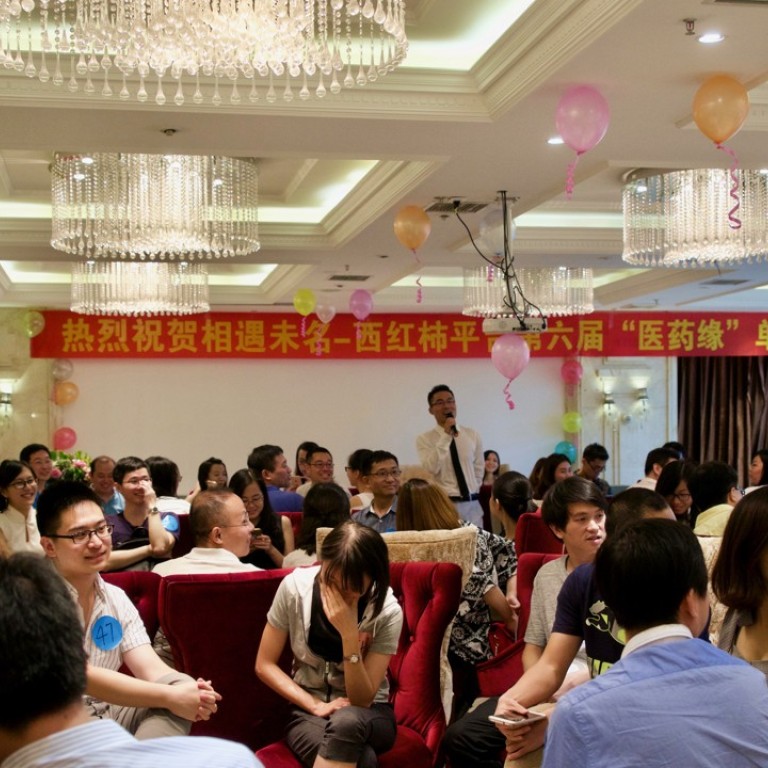
First the diploma, then the date: how China’s educated elites find love
More and more young people in China are prioritising an elite academic background over salary and looks when looking for a partner
One afternoon in early September, Lucy Zhou decided to skip her usual Saturday lectures. Instead, the 34-year-old new media executive put on a traditional Chinese dress, let down her long hair and applied some light make-up: she was going to a group date in northern Beijing.
When she arrived, Zhou was asked to join other guests in a circle and was partnered with the man sitting next to her. After a brief conversation, their host invited each guest to introduce their partner to the 70-odd participants.
As some details were omitted and others played up, one thing that never went unmentioned was where these single people, mostly in their early 30s and some in their late 20s, received their education.
Like Zhou and the others at this matchmaking event, an increasing number of young people in China are prioritising an elite academic background over other considerations such as salary and looks when looking for a partner. Relationship experts said those with the most prestigious educations were more likely to find a match within their peer group.
The participants at the matchmaking event Zhou attended had graduated from top universities, either in China or in the United States or Britain, and many were postgraduates.
All had been thoroughly vetted by the event’s organiser, Meeting by the Weiming, a matchmaking consultation firm that takes its name from Weiming Lake on the campus of China’s prestigious Peking University (PKU).
Zhou, who graduated from PKU, said the participants’ outstanding educational background was why she was willing to spend one afternoon and 150 yuan (HK$181) on this event: to meet single men of the same educational background, preferably also PKU alumni.
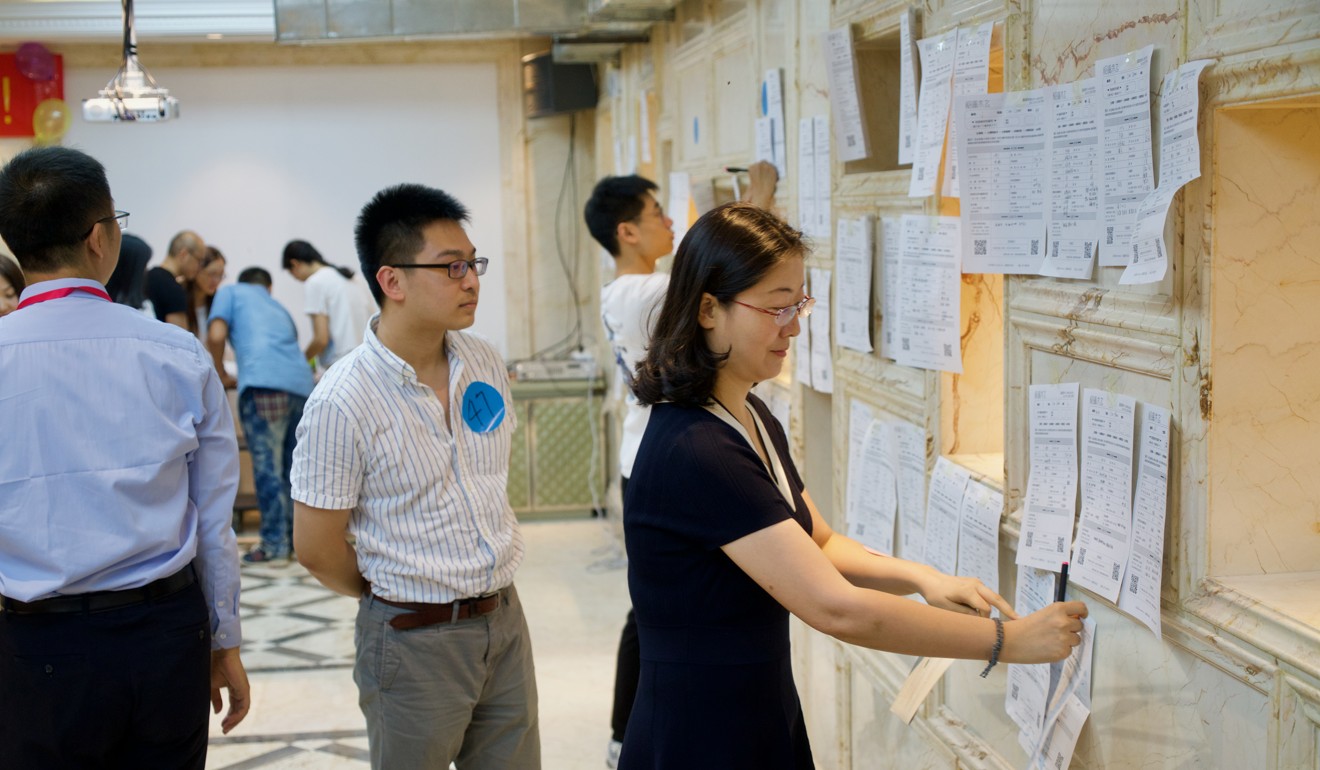
“My friends used to set me up with strangers and conversation soon dried up. Graduating from PKU means we have something in common and will have a lot to talk about, which is very important to manage the relationship,” Zhou said.
Peter Yang, who went to the elite Renmin University in Beijing for his bachelor and master's degree, said he cared most about the character of a girl, followed by her looks; but both issues were secondary if she didn’t meet his essential criteria – holding a degree from a top university.
The 32-year-old commercial banker has been actively taking part in matchmaking events since first putting marriage on his agenda. He said he would not date someone who graduated from just any university.
“Some had very complicated background. I trust only those who had almost the same background as me. Different people care about different things and in my case I care about that,” Yang said.
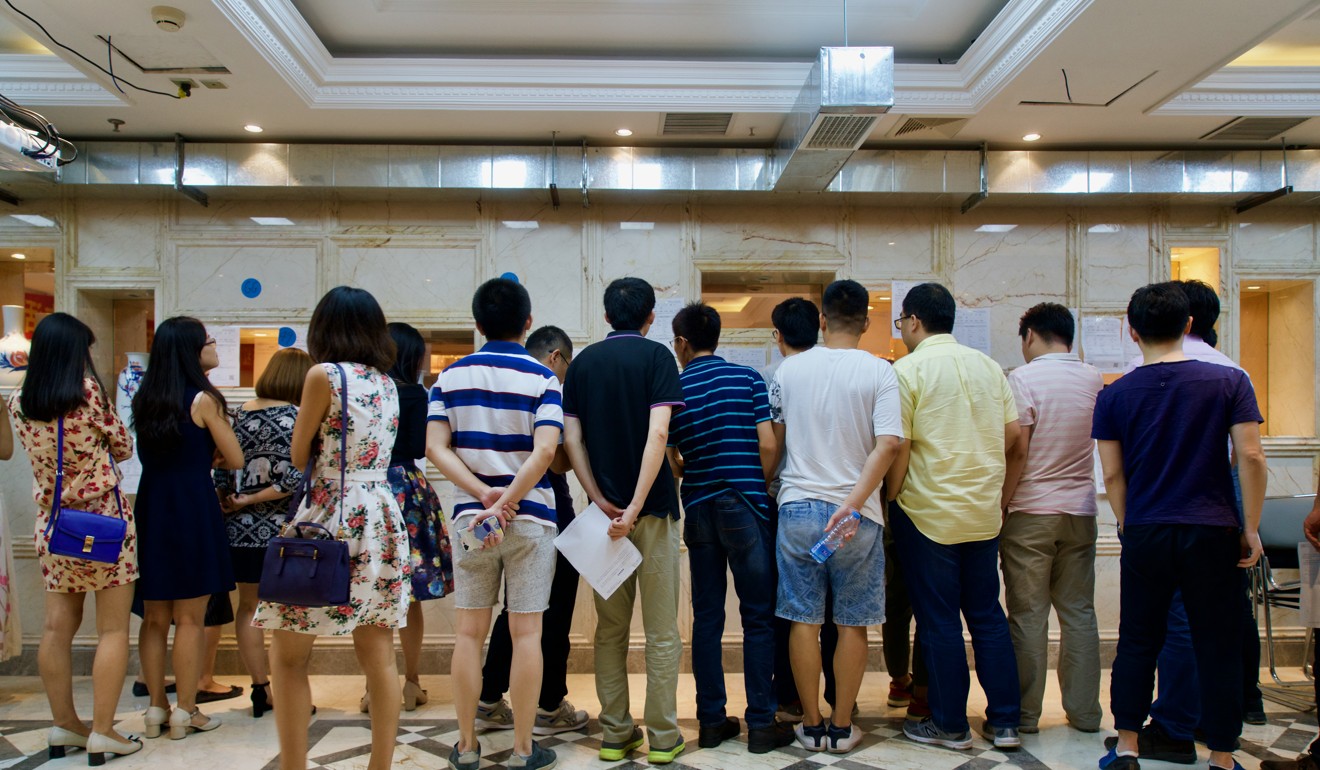
He said he was looking for a woman who was sweet-natured, family-oriented, loyal and did not have what he described as a “complicated” family situation, such as divorced parents.
Fan Yangjun, CEO of Meeting by the Weiming, believes people with similar educational backgrounds are more likely to click.
A PKU graduate, Fan started the service for PKU alumni in 2013 then gradually spread it among alumni of other leading universities. Thirty per cent of his members were graduates from PKU or Tsinghua University, widely considered China’s two best higher-learning institutions, while others were from top universities comparable to US Ivy League schools.
Among his 27,000 members, 1,500 have found loved ones through the service. Six hundred couples have married.
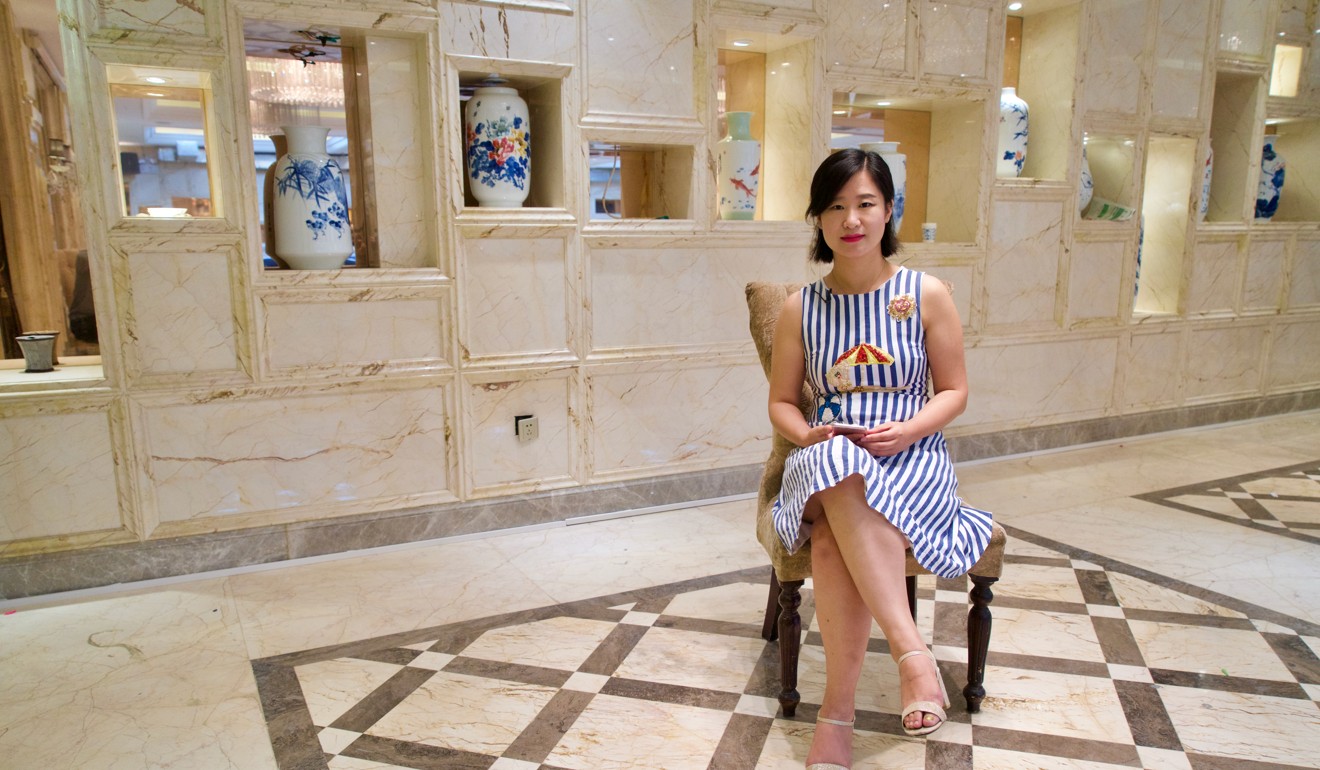
“I think the most important factor is they share the same values, which either comes from their similar family background or similar experiences,” Fan said. Young people spend so much time in school that when they grow up, “going to similar schools and similar universities matters”.
Fan said the point of pegging matches to top universities was not to ensure potential partners had high IQs. Rather, he said, it was to ensure that people in the club had similar family backgrounds.
But even within this exclusive circle, finding the right partner doesn’t come easily, he acknowledged.
Yang said he had not yet met any woman he wanted to get to know better – a key step in moving on to a serious relationship.
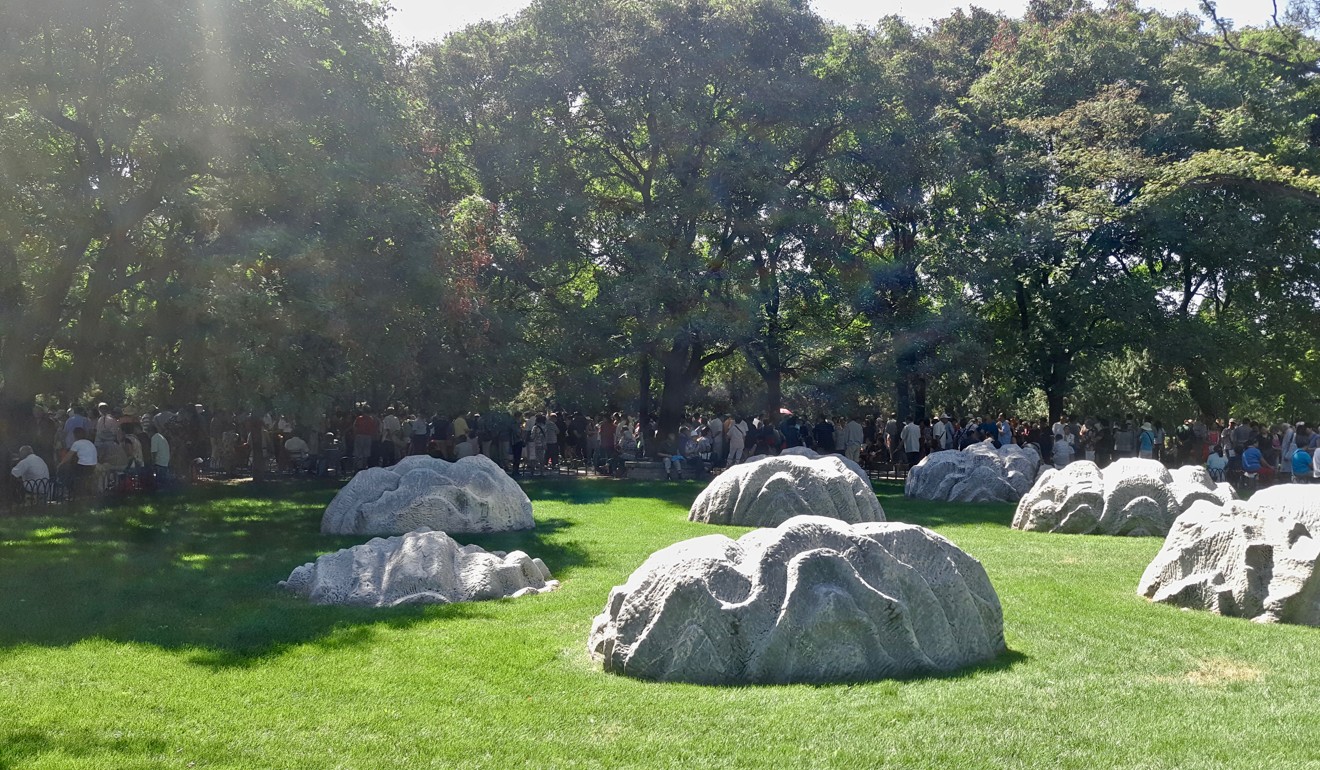
Jesse Fang, a veteran relationship expert and specialist in matching people with elite educational backgrounds, said some of her clients found the right match within two months; but others were not so lucky, particularly if the client was very picky.
“A lot of girls in their 30s found themselves unhitched even though they have high pay, excellent education and their own flat,” Fang said. “They will not lower their standards and consider anyone out of their circle. But actually the men whom they consider to be in their circle tend to look for younger women.”
Fang said many men in their late 30s think they can offer women material comfort and are therefore very picky about the woman’s looks. But they fail to consider that women can provide themselves with material comfort and expect good looking men.
“The process of matchmaking is about having the right perception about one’s self,” Fang said.
Zhou, who eventually left the matchmaking event with a man who shared her interest in painting and traditional Chinese medicine, said she was looking for marriage but would not rush into anything.
Having recently ended a seven-year relationship, Zhou said she was happy at least to make some friends at such events.
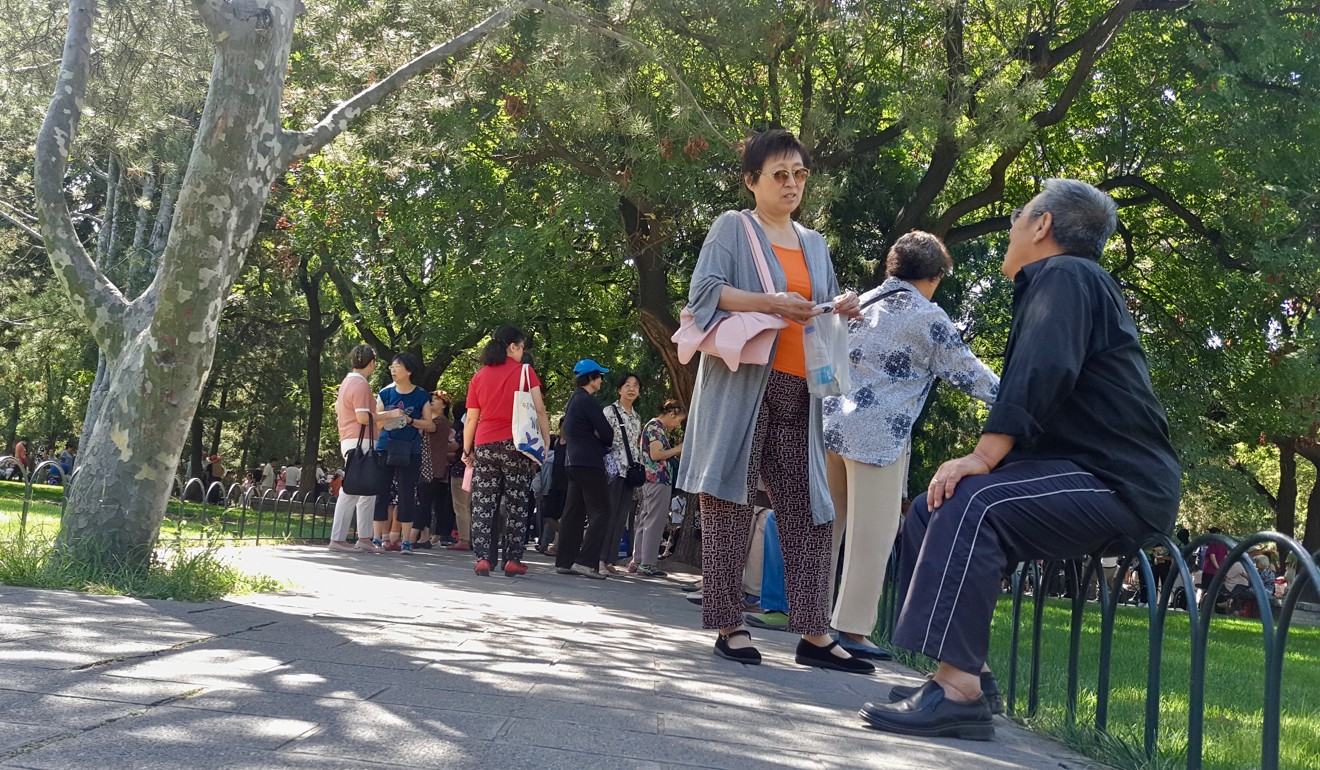
But while organised dating events may help some find love, they are not enough for some parents, who worry so much about their child’s finding a partner that they go to matchmaking parks in Beijing behind his or her back.
Fan Shengxiang, 59, a retired middle schoolteacher from Hebei province, went to Beijing’s Tiantan Park on behalf of her 33-year-old single daughter. Fan and other parents met in a corner of the park three mornings a week to exchange their offsprings’ contact details. They would pass on the numbers to their children and let them decide whether to make contact.
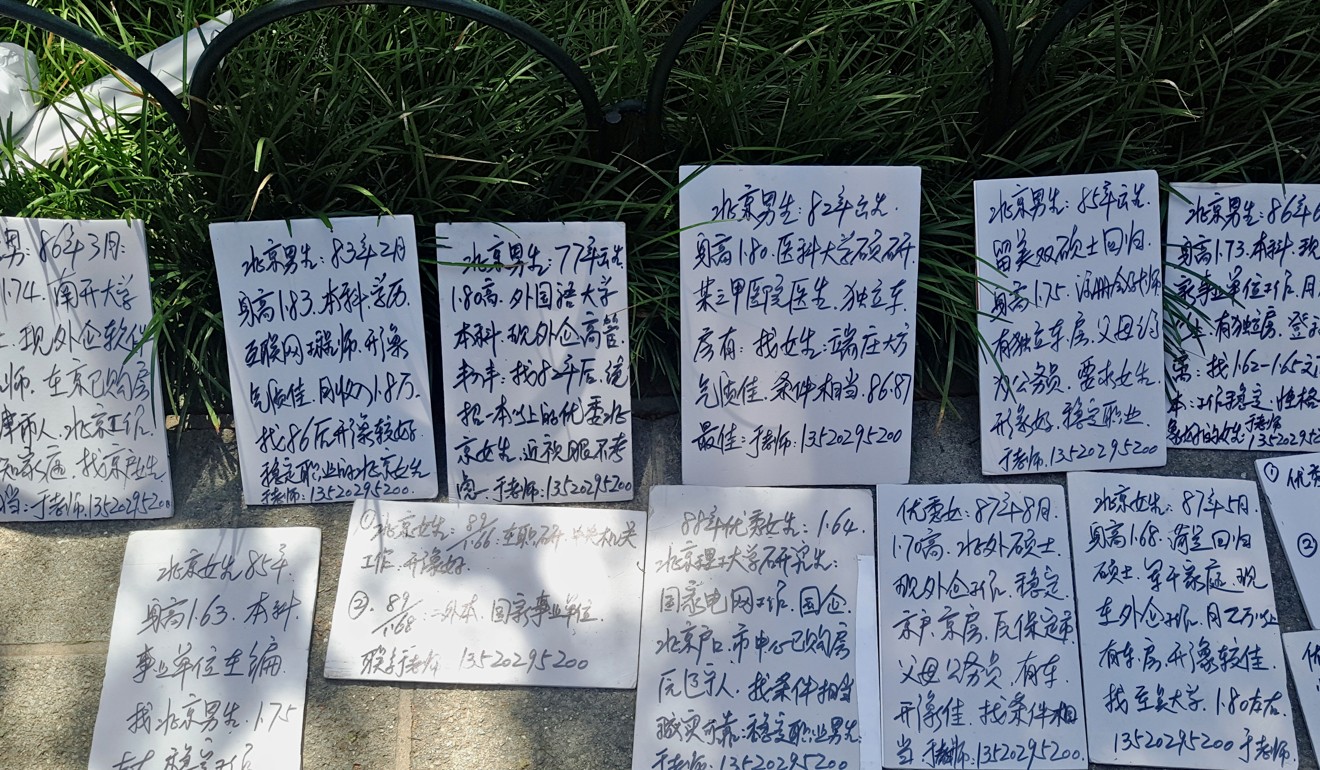
Fan said her daughter graduated from the elite Beihang University and works at a top internet company, but had not found a partner among her male colleagues and classmates.
With a high salary and her own flat, the daughter thought many men of her age were not up to her standards, and those she was interested in often preferred younger girls, Fan said.
“Usually she was set up with older men and she would complain why bother to marry, at all?” Fan said. “She also insists her boyfriends must be very handsome. I told her to watch less television.”

